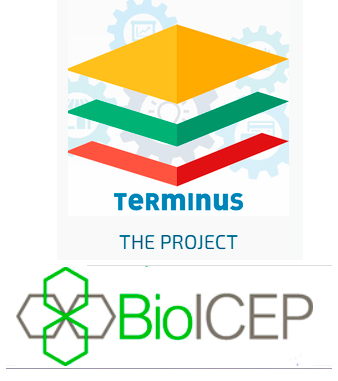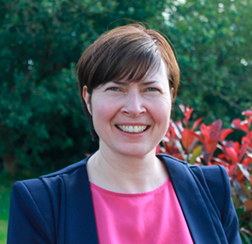 |
BIOICEP - Newsletter December 2020
Bio Innovation of a Circular Economy for Plastics
|
|
|
|
|
1. GET TO KNOW THE PARTNERS OF BIOICEP PROJECT AND THEIR ROLES
|
|
|
|
|
|
|
|
|
|
|
2. BIOICEP WAS PRESENTED AT EUROPEAN RESEARCHER'S NIGHT 2020 (ANNUAL EVENT SUPPORTED BY EC)
|
|
|
|
|
|
|
|
|
|
|
|
|
3. BIOICEP AND TERMINUS HAVE STARTED TO WORK TOGETHER TO PROVIDE INNOVATIVE SOLUTIONS IN THE PLASTICS SECTOR.
|
|
|
|
|
|
|
|
|

An international academic and industry research consortium securing €12 million across two EU and China funded projects targeting problematic multi-layered plastics Researchers at Athlone Institute of Technology (AIT) and Sigma Clermont begin joint work this month on two projects to develop novel technologies which will separate, treat and repurpose multi-layered plastics. The two projects, entitled BioICEP and TERMINUS, have been awarded a total budget of €11.6 million under Horizon 2020, EU’s Framework Programme for Research and Innovation and the National Science Foundation of China.
The scale of the problem is immense, but often goes unseen. Multi-layered packaging, for example, crisp bags and other ready-to-eat snacks within shiny packets, account for up to 56% of plastic packaging in developed countries. It is estimated that every residence in the U.S.A uses 27 kg of multi-layered plastic films each year. While they cover many supermarket foods and other perishable products, multilayer plastics are notoriously difficult to separate into discrete layers that can be effectively recycled. By the end of the projects, in four years’ time, researchers hope that the combined outputs from both projects will herald a new generation of green technologies, transforming how we live with plastics.
The projects each focus on a specific aspect of the plastics life cycle that when combined will close the loop from our linear processes into one of circularity. The TERMINUS project is the starting point. It aims to develop a new biotechnology specifically designed to separate the layers of plastic from multi-layered plastics and packaging using enzymes to degrade the layers of adhesive holding the plastics together. The technology developed through BioICEP will take the individual layers of plastic generated through TERMINUS and break these down further into their chemical constituents (a process known as depolymerisation) using combined green mechanochemical and enzymatic technology. In essence, the two projects will turn petroleum derived plastic waste into individual building blocks for new replacement eco-plastics that do not harm the environment.
Combining the BioICEP and TERMINUS technologies provides a route to upcycling multi-layered plastics and using their constituent molecules to create products that are perpetually regeneratable, delivering full plastics circularity. The BioICEP-TERMINUS collaboration is a compelling ecological-based proposition to address the global environmental plastics challenge, simultaneously creating new opportunities for industry to transition from a linear model of petroleum-based plastics production to a production model based on circularity. AIT researchers believe that the outputs from these projects could open up potential new markets for eco-based technologies and product development: the cornerstone of a circular economy that works for business, society and the environment.
More info on BioICEP web
|
|
|
|
|
|
|
|
The BioICEP consortium presented in the second meeting the selected posters of postgraduates and researchers from each of the partner institutes and organizations to present how their current research work is in line with or conforms to BioICEP's ambitions and objectives. The BioICEP Consortium fully supports collaboration, knowledge sharing and listening to the future talents of researchers to help in our mission to drive innovation and excellence for the BioICEP project. Find the winners here.
Winner: BioICEP ‘Postdoctoral Poster’ Dr Catherine Collins, Limerick Institute of Technology [LIT] Ireland.

Dr Catherine Collins is a Research Scientist at Shannon Applied Biotechnology Centre in Limerick Institute of Technology. Her work focuses on exploring the role of fungi in the bioremediation of plastics as part of the Horizon 2020 BioICEP project https://www.bioicep.eu/. Catherine has a degree in Biochemistry and a PhD in Fungal Biotechnology. She had worked on a number of fungal projects both in Ireland and the U.K. prior to joining Shannon Applied Biotechnology Centre. While working at Shannon ABC, she has established her own research group which focuses on investigating mushrooms and fungi as functional foods and as sources of enzymes and other bioactives.
Winner: BioICEP ‘Postgraduate Poster’ Naiara Farias, Athlone Institute of Technology [AIT] Ireland.

Naiara has a Bachelor’s Hons Degree in Chemical Engineering from Universidade do Estado do Rio de Janeiro- UERJ (2017) and a master’s degree in Chemical Engineering from Universidade Federal do Rio de Janeiro – UFRJ / COPPE (2019), focusing on synthesis and kinetic modelling of cationic polymerization of polyolefins. Following her Master of Science studies, she worked in a huge Brazilian petrochemical company, Braskem, as a researcher trainee under the technology and innovation department, being part of projects to develop new products and processes. Currently, she is undertaking a Ph.D. in Athlone Institute of Technology (AIT) focusing on the development of sustainable flexible packaging solutions using novel biodegradable and compostable polymer blends.
|
|
|
|


The Bioicep project has received funding from the European Union’s Horizon 2020 research and innovation programme under grant agreement No 870292.
|
|
|
|
|
|
|
|









